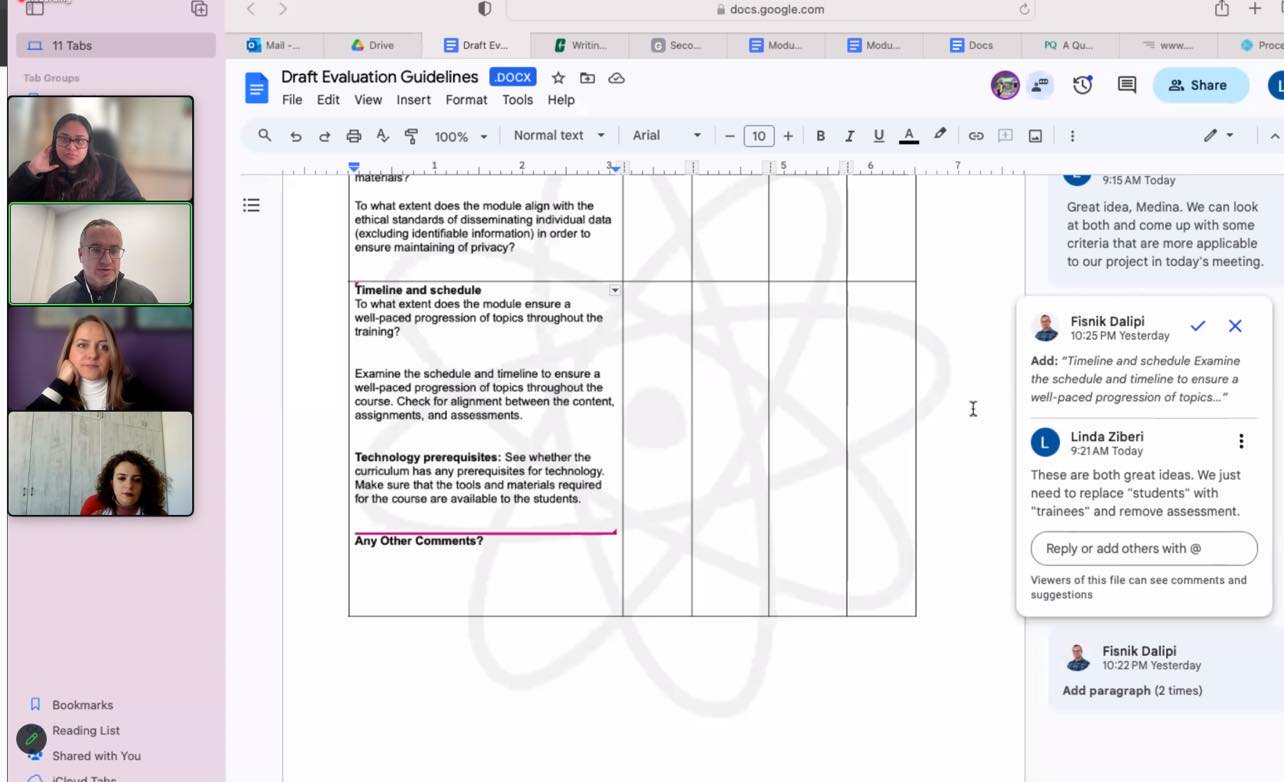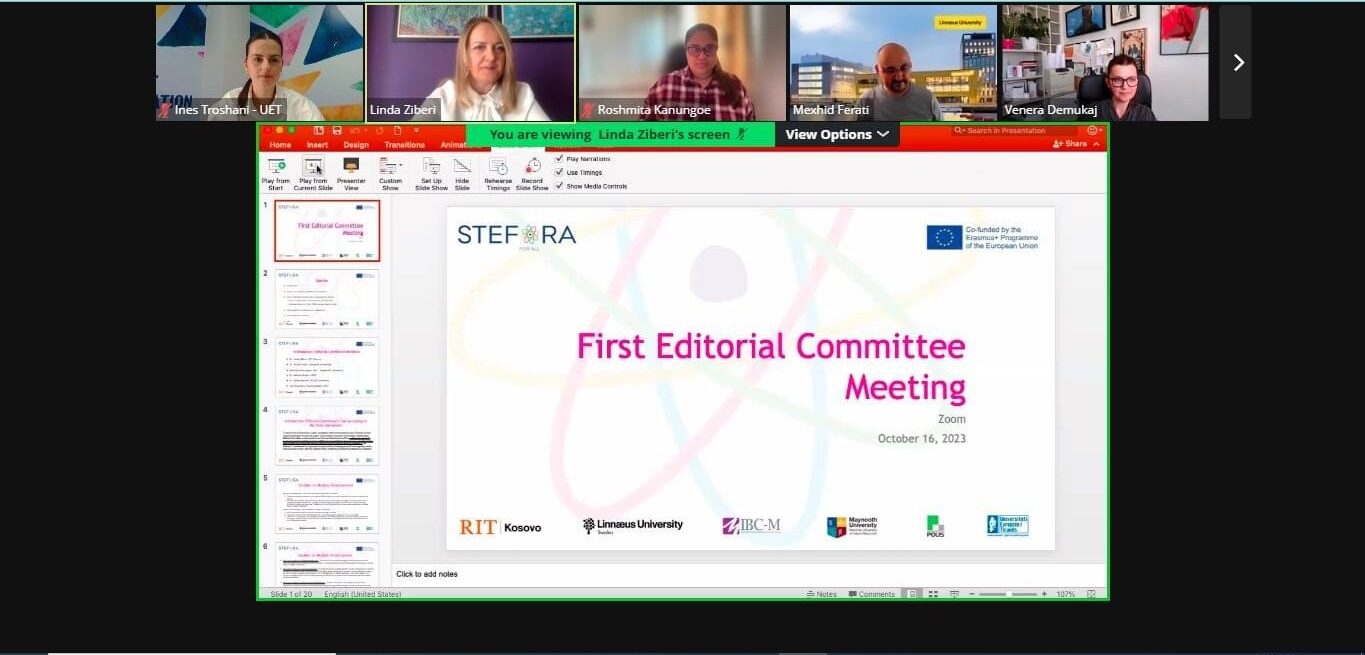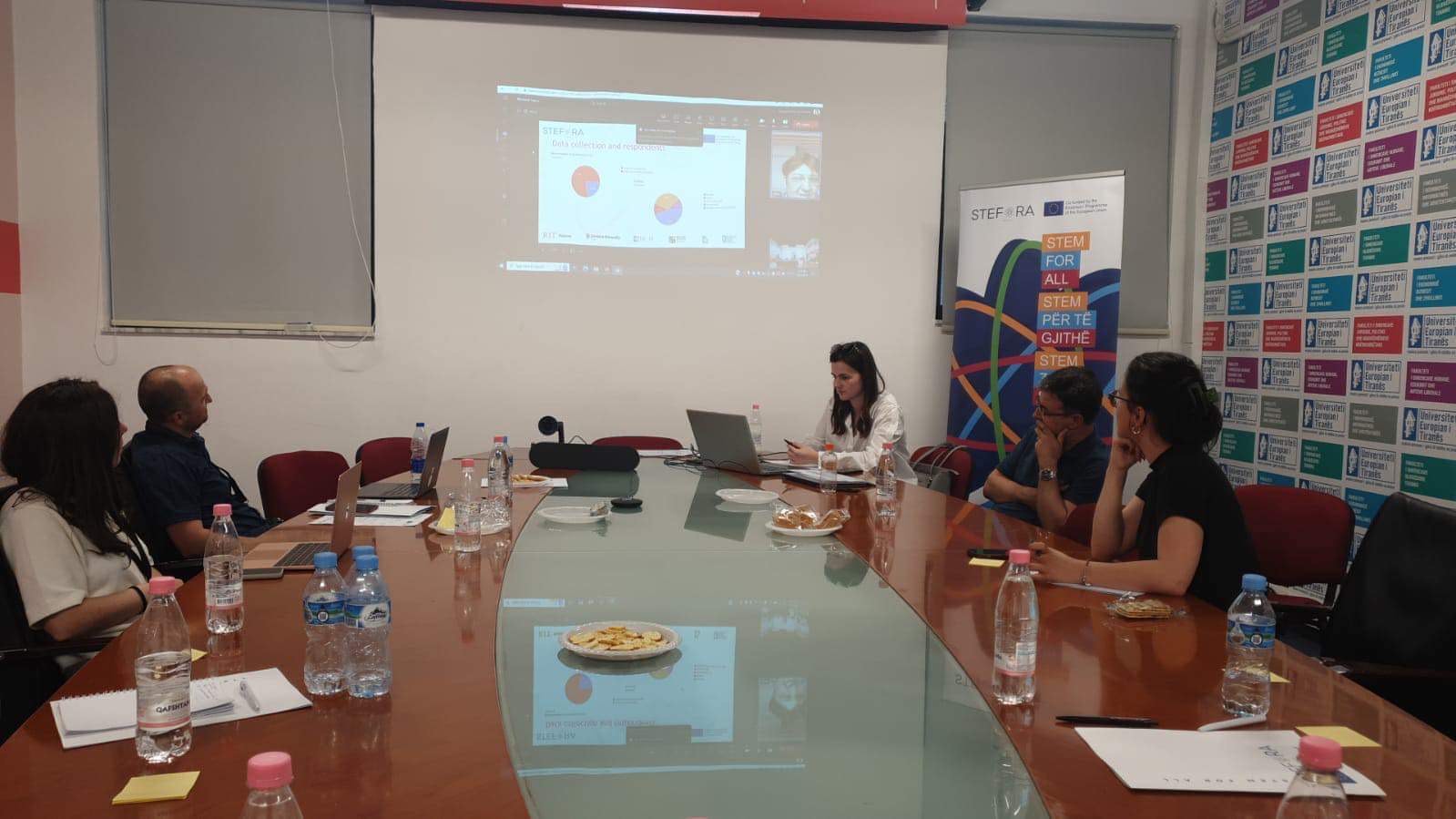STEM for ALL: Second Editorial Committee Meeting held!
Completion of the evaluation of the Editorial Report of Three STEM Courses led by Dr. Mexhid Ferati from LNU University and finalization of the module evaluation guidelines, created as a team collaboration by all committee members. Selection of two additional representatives in the external evaluation committee for the three modules developed by RIT K, LNU, and Maynooth University.

The First Editorial Committee Meeting
The first Editorial Committee meeting, conducted online, convened to discuss the committee’s role and the evaluation of education modules. The meeting consisted of six members, representing the respective member institutions of the consortium. The focus of the meeting was on the evaluation process for the Education Modules developed as part of WP2 and the Editorial Report produced by the LNU team.
The committee agreed that the first step of the committee will be to define the evaluation criteria to assess modules, considering the target audience, engagement level, and overall educational value. The committee scheduled a follow-up meeting to discuss and decide on the evaluation guidelines for the modules and the external evaluation team.
The first Editorial Committee meeting established a robust basis for the committee’s function and the assessment of educational modules, nurturing a shared sense of purpose and collaboration among its members.

On May 25, 2023, the First Quality Assurance Meeting Took Place During the Teams Visit at UET
In the first Committee Meeting, crucial discussions took center stage, focusing on vital aspects of ongoing activities and plans for the future. The committee thoroughly reviewed and reported on the outcomes of internal evaluations of completed events and activities.
Moreover, the meeting also included an in-depth evaluation of deliverables produced in Work Package 1 (WP1), and as such, this comprehensive assessment aimed to measure the quality and effectiveness of the project outputs.
As a result of these discussions, valuable recommendations were formulated to guide future initiatives. These insights will play a pivotal role in shaping upcoming activities and deliverables, enhancing their quality.



